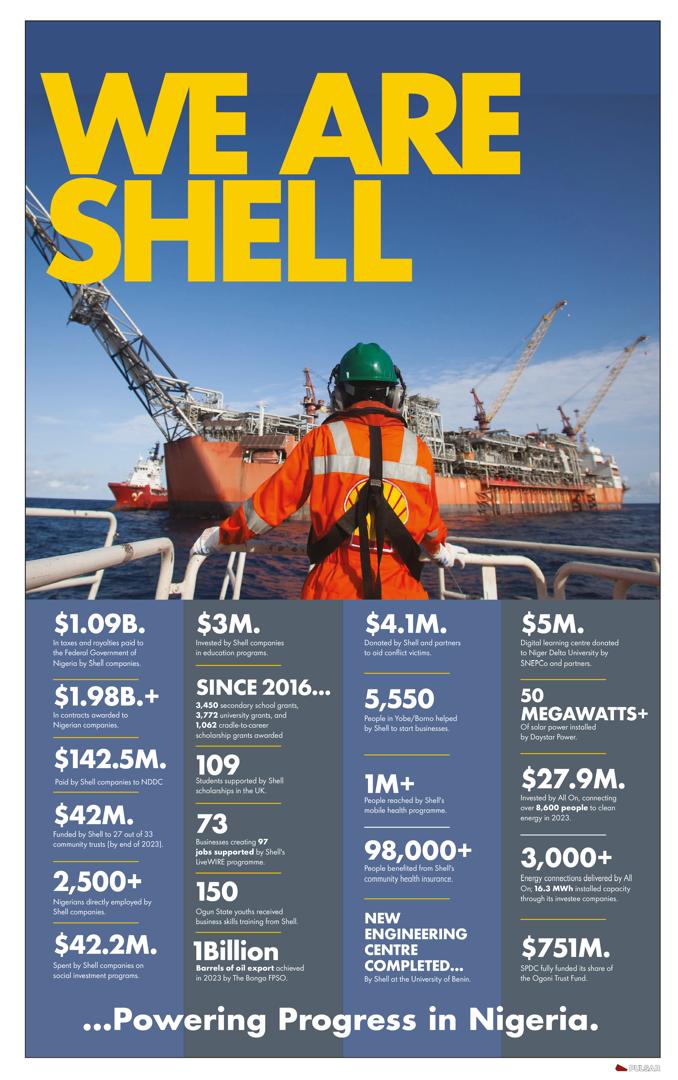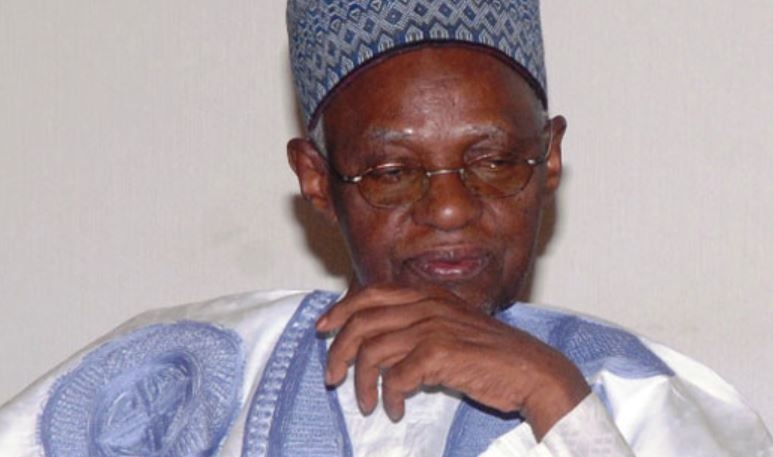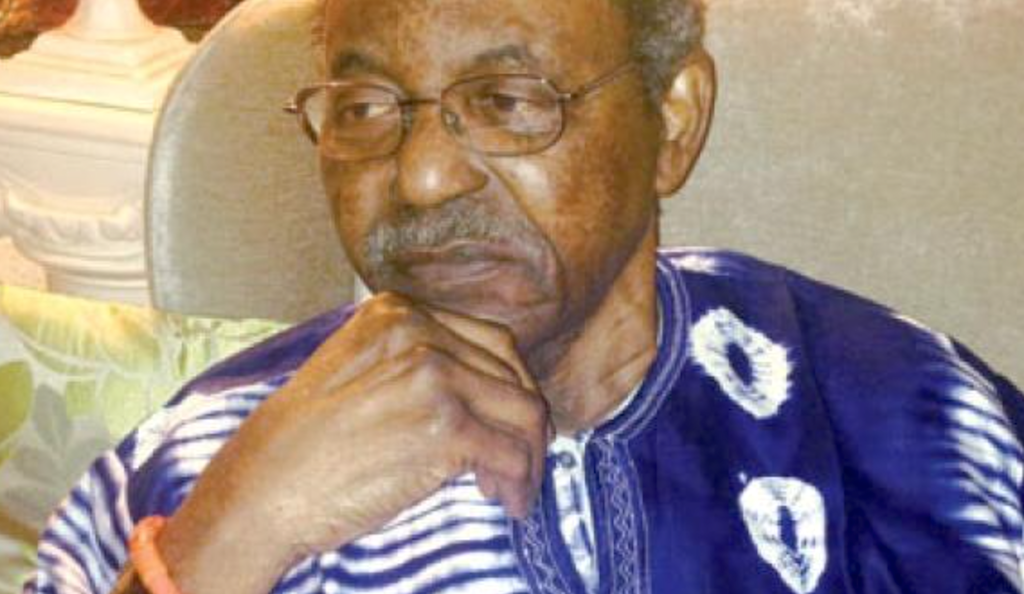EXCITING NEWS: TNG WhatsApp Channel is LIVE…
Subscribe for FREE to get LIVE NEWS UPDATE. Click here to subscribe!
Former President Shehu Shagari, on Friday, died after a brief illness at the age of 93 at the National Hospital, Abuja.
Here is a report on the life and times of the former President.
LIFE AND TIMES
Born in 1925 in the northern Shagari village founded by his great-grandfather, Ahmadu Rufa’i, who was also the Village Head, he took the name Shagari as his family name. His father’s name is Aliyu and his mother’s name is Mariamu.
He was raised in a polygamous family, and was the sixth child born into the family. Shagari started his education in a Quranic school and then went to live with relatives at a nearby town, where from 1931-1935 he attended Yabo elementary school. In 1936-1940, he went to Sokoto for middle school, and then from 1941-1944 he attended Kaduna College.
Shagari joined politics in 1951, when he became the secretary of the Northern People’s Congress in Sokoto, a position he held until 1956. In 1954, Shehu Shagari was elected into his first public office as a member of the federal House of Representatives for Sokoto west. In 1958, Shagari was appointed as Parliamentary Secretary to the Prime Minister, Sir Abubakar Tafawa Balewa, a position he left in 1959, to serve as the Federal Minister for commerce and Industries. From 1959 to 1960, Shagari was redeployed to the Ministry of Economic Development, as the Federal Commissioner for Economic Development.
In 1960, he was moved to the Pensions Ministry as the Federal Minister for Pensions. From 1962 to 1965, Shagari was made the Federal Commissioner for internal affairs. From 1965 up until the first military coup in January 1966, Shagari was the Federal Minister for works. In 1967, he was appointed as the secretary for Sokoto province education development fund. From 1968-1969, Shagari was given a state position in the North Western State as commissioner for establishments. After the Nigerian civil war, from 1970-1971, Shagari was appointed by the then Military Head of State General Yakubu Gowon as the federal commissioner for economic development, rehabilitation and reconstruction.
From 1971 to 19 75 he served as the Federal commissioner for finance. During his tenure as the commissioner of finance for Nigeria, Shagari was also a governor for the World Bank and a member of the International Monetary Fund (IMF) committee of twenty. In 1978, Shehu Shagari was a founding member of the National Party of Nigeria (NPN).
In 1979 Shagari was chosen by the party as its presidential candidate for general election, which he won becoming the president. Shagari ran for a second four-year term in 1983 and won the general election, however, on December 31, 1983, Shagari was overthrown by President Muhammadu Buhari, who was then a major general in the army.
He served as the first and only Presidentof Nigeria’s Second Republic (1979–1983), after the handover of power by General Olusegun Obasanjo’s military government. Shagari was made the Turaki of the Fula Sokoto Caliphate in 1962 by the Sultan of Sokoto Siddiq Abubakar III. Turaki means an officer at court, in this case referring to the sultan’s court at the palace of Sokoto.
In addition, he also holds the chieftaincytitles of the Ochiebuzo of Ogbaland, the Ezediale of Aboucha and the Baba Korede of Ado Ekiti. He worked as a teacher for a brief period before entering politics in 1951 and in 1954 was elected to the federal House of Representatives.
Policies Oil boom
During the oil boom, Shagari made Housing, Industries, Transportation and Agriculture as the major goals of his administration. In transportation, he launched some road networks across the country. He also initiated a program to foster the use of mechanical machinery in farming. It favored large scale farmers in order to produce mass products. Shagari created a low cost housing scheme. In 1980, with the oil revenue, Shagari finished building the Kaduna refinery, which started operation that year. Also with the oil revenue, Shagari concluded the construction of an additional steel plant and three rolling mills at Ajaokuta, Nigeria. Shagari completed the Delta Steel complex in 1982. In 1983, Shagari created the Aluminum Smelter Company of Nigeria at Ikot Abasi, Nigeria. However, Shagari reduced the share of oil royalties and rents to state of origin from 30 to 2 percent.
Green Revolution
Shagari’s government embarked on a “Green Revolution”, distributing seed and fertilliser to farmers to increase nationwide productivity in farming. The Shagari administration was plagued by allegations of corruption, including allegations of electoral fraud in the 1983 election. This, coupled with a decline in world oil prices, and a deterioration in the national finances, hardship, lead to the regime becoming deeply unpopular with citizens. Shagari was overthrown by General Muhammadu Buhari in a military coup on December 31, 1983.
Personal life
Shehu Shagari married three wives: Amina, Aishatu, Hadiza Shagari. He has many children. However, His most visible children are Captain Muhammad Bala Shagari Rtd. and Aminu Shehu Shagari. On August 24, 2001, his wife, Aisha Shagari, died in a London hospital from a brief illness. The Grand Commander of the Order of the Federal Republic (GCFR) title holder, in his autobiography, ‘Beckoned To Serve’, Shagari shared his experience from early childhood through his period as president in 1979-1983, and beyond. As the son of a village chief, who became a school teacher, political activist and committed democrat and nationalist, his story is told within the context of the transition from colonial rule to independence and the struggle to build a stable country with democratic institutions and values.








